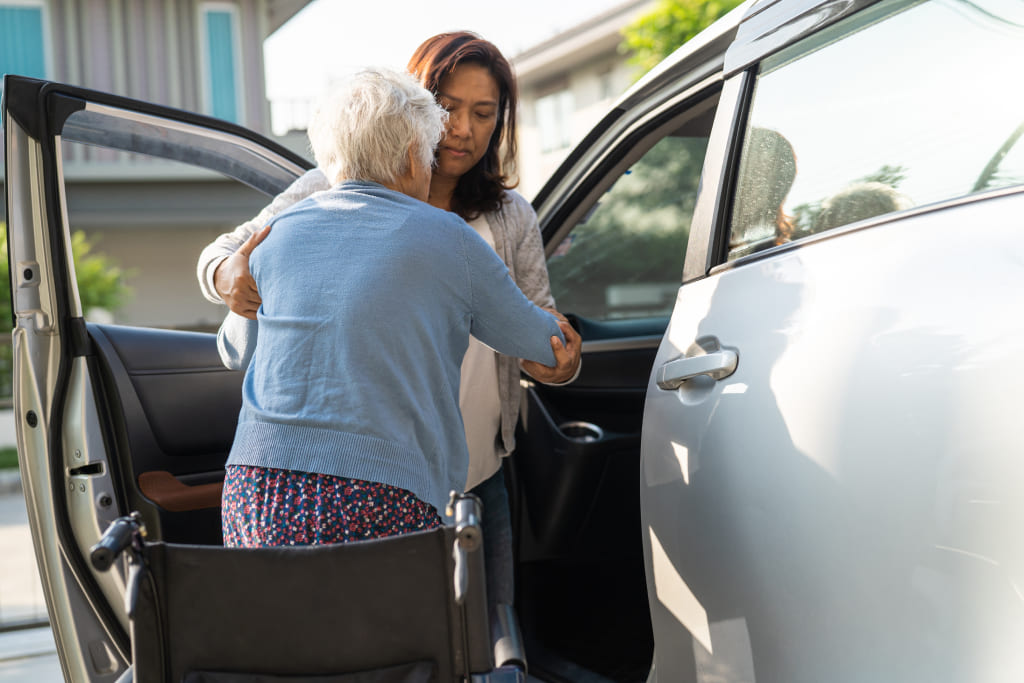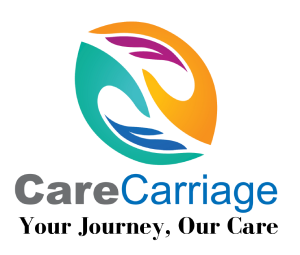
Daily Life Tasks and Shared Living Arrangements
Supported Independent Living (SIL) is an NDIS support package designed to help individuals live independently, either on their own or with others who have disabilities. This support provides assistance with everyday tasks such as cooking, cleaning, and personal care, promoting greater independence. SIL also helps individuals engage in new activities, social events, and hobbies within their homes and local communities. At Care Carriage, we are committed to delivering tailored SIL services to meet individual needs.
Here’s what is typically included in Daily Life Tasks and Shared Living Arrangements NDIS participants:-
1) Daily Life Tasks (Personal Care and Domestic Activities)
This component involves support for personal care assistance, domestic support, social and community participation and capacity building that help participants lead a more independent life. These tasks can vary depending on the individual’s needs and goals.
Personal Care Assistance
- Bathing and Showering : Assistance with getting in and out of the shower, as well as ensuring safety during the bath or shower.
- Dressing and Grooming: Support with selecting appropriate clothing and assistance with dressing, grooming, and personal hygiene tasks such as shaving, brushing teeth, and hair care.
- Toileting: Assistance with personal hygiene and toilet tasks, ensuring the participant’s privacy and comfort.
- Feeding: Help with meal preparation and eating, including feeding if the participant is unable to feed themselves independently.
Domestic Support
- Cleaning: Light housekeeping tasks, such as vacuuming, dusting, washing dishes, or making the bed.
- Laundry: Support with washing, drying, folding, and putting away clothes.
- Meal Preparation: Help with preparing meals, ensuring nutritious and healthy food options, and assisting with cooking or meal planning.
- Shopping: Assistance with grocery shopping, including budgeting, carrying items, and selecting items as needed.
- Organizing the Home: Help with maintaining the organization and cleanliness of the living space, ensuring it is safe and comfortable.
Social and Community Participation
- Social Interaction: Encouraging interaction with other people in the shared living environment, as well as supporting participants in joining community events, social gatherings, or activities that align with their interests.
- Access to Community Programs: Assistance with attending community events or programs, helping participants integrate into local activities and interact with their community.
Capacity Building and Safety and Environmental Modifications
- Learning Domestic Skills:Support with teaching basic life skills, like cooking, cleaning, laundry, or managing finances.
- Skill Development: Providing training and support to help participants develop greater independence in areas such as mobility, personal care, communication, or daily routines.
- Home Modifications: Modifications to the home or living space to ensure that it’s accessible, such as installing ramps, wider doorways, or accessible bathrooms.
- Emergency Procedures: Training or support in emergency procedures, like fire safety or responding to medical emergencies, ensuring that participants can safely manage unexpected situations.
- Assistive Technology: The use of specialized equipment like mobility aids, smart devices, or other assistive technology to enhance independence and ensure safety within the home.
Life Skills Support
- Assist – Life Stage, Transition:We understand that life’s transitions can be challenging — whether it’s moving out of home, starting a new job, pursuing further education, or adjusting to a new stage of independence. Our team provides personalised support to help you plan, prepare, and confidently manage these changes. We work alongside you to set meaningful goals, develop essential life skills, and connect you with community, education, and employment opportunities. Our focus is on empowering you to make informed choices and build a fulfilling, independent life at every stage of your journey.
- Assist – Travel / Transport:We arrange reliable and safe transport assistance to help you stay connected with your community and live more independently. Our support includes travel to medical appointments, work, education, social activities, and other daily commitments. Our trained and friendly staff ensure you travel comfortably and on time, while promoting confidence and independence in using public or private transport. Whether you need regular transport or occasional support, we’re here to make every journey smooth and stress-free.
- Development of Life Skills: We empower participants to build the confidence and practical skills needed for greater independence in everyday life. Our tailored programs focus on developing essential abilities such as personal care, cooking, budgeting, communication, time management, and problem-solving. Through hands-on learning and individual support, we help participants gain the skills to manage their homes, relationships, and community involvement with confidence. Whether you’re learning new routines or working toward independent living, our team is here to guide and support your journey every step of the way.
2) Shared Living Arrangements
Shared living arrangements involve living with other people in a communal or supported setting, such as group homes or shared accommodation. These services are designed to provide participants with access to independent living options while ensuring they have the support they need.
Living in a Shared Home
- Group Homes: Supported living arrangements where several individuals live together in a home-like environment. The support is tailored to the needs of the participants and typically includes assistance with daily tasks, socialization, and skill development.
- Supported Accommodation: Participants may live in a shared accommodation where they have their own space but receive assistance with daily life tasks from support workers who live in or visit the home.
- Supported Independent Living (SIL):SIL services provide participants with the assistance they need to live independently while sharing accommodation with others. This could include help with cooking, cleaning, medication management, and other life skills.
- Peer Support: Participants in shared living arrangements benefit from peer interactions and social support, helping to reduce feelings of isolation.
24-Hour Care and Supervision (if needed):
- Overnight Support: Some shared living arrangements offer 24-hour care, which might include overnight staff to ensure that participants’ needs are met during the night (such as assistance with getting to the bathroom or in the event of an emergency).
- On-Site Support Staff: Support workers are available on-site to assist with day-to-day living, ensuring the environment is safe, and providing immediate help when required.
- Health and Wellbeing Monitoring: Monitoring the health and wellbeing of participants, assisting with medication management, and addressing any medical or behavioral concerns.
How to Access Daily Life Tasks and Shared Living Arrangements Services
- NDIS Plan: These services are typically funded under the Core Supports category for daily life tasks or Capacity Building for support in shared living arrangements. Participants must have this support included in their NDIS plan.
- Support Coordination: Support Coordinators can help you connect with providers who specialize in daily life task support or shared living arrangements.
- Accommodation Providers: NDIS participants can find shared living options through registered accommodation providers offering Supported Independent Living (SIL) and other housing services.
Benefits of Daily Life Tasks and Shared Living Arrangements:
- Increased Independence: Participants can gradually take on more responsibility for daily life tasks and become more independent in managing their own living situation.
- Social Inclusion: Living in shared environments encourages social interaction, reducing isolation and promoting a sense of belonging in the community.
- Safe and Supportive Environment: Participants receive the right level of support to ensure they are living safely while also having the opportunity to develop important life skills.
- Empowerment: Through daily life skills training and personalized support, participants can achieve greater independence, confidence, and self-determination.
